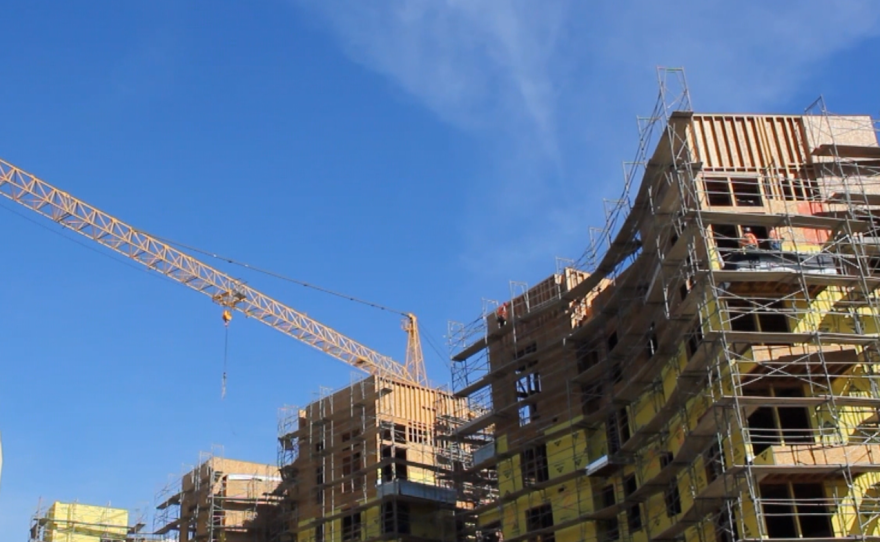The California Senate approved on Monday what some lawmakers have called a carrot-and-stick approach to the state's housing crunch by setting aside $2.4 billion to address housing and homelessness while setting up a process to punish cities that consistently flout the state's housing policies.
The plan comes amid tensions between housing rights advocates and local governments they accuse of taking a "not in my back yard" attitude to housing even as rents increase, home prices rise beyond reach for many and a growing number of people take to sleeping on the streets across the state.
Assembly Bill 101 incentivizes the construction of housing in some areas and sets aside $650 million in the state budget to address homelessness. It also attempts to allow for faster construction of homeless shelters by scrapping some environmental reviews and making it harder for local officials to delay projects.
While the state is pouring hundreds of millions of dollars into addressing homelessness, plans for some new homeless shelters are getting bogged down in court.
RELATED: California Leaders Propose Rewards, Fines To Spur Housing
"The timelines need to be shorter," said Senate Majority Leader Bob Hertzberg, a Democrat from Van Nuys, who bemoaned the length of time it can take to build affordable housing or open homeless shelters.
The plan could also land some communities in court if local governments don't allow more housing to be built.
Cities and counties that take steps to promote new housing would be deemed "pro-housing" and rewarded with more grant funding for housing and transportation.
Local governments that don't comply with state housing requirements could face court-imposed fines. In some cases, the court could take over a local government's authority to issue housing permits.
"There is a law, and you've got to abide by the law," Gov. Gavin Newsom told reporters. "And if you don't, it's nice to have a tool to encourage you along. And that's all this is."
The state Senate passed the bill by a vote of 39-0, and it is expected to win approval in the Assembly later this week.
Still, the plan amounted to something of a compromise after Newsom's administration sued one city earlier this year over its compliance with the state's housing policies, and local governments raised concerns about state government overreach. Some counties worried they would not get a fair share of money to address homelessness.
Housing has emerged as one of the most contentious issues of California's legislative session. Surveys released over the last several months have shown increases in homelessness across California, and neighboring states are seeing an influx of Californians leaving, in part, a high cost of living.
Some lawmakers argued the bill would not address the cost of building in California and does not do enough to prevent homelessness by helping renters, raising bigger issues of housing that have proven politically fraught.
The biggest housing bill still standing would cap rent increases at 7% plus the rate of inflation for homes older than 10 years.
That bill's author, Assemblyman David Chiu, D-San Francisco, said Monday he would amend it to include tighter rules on evicting tenants, giving another shot to a separate piece of legislation that sputtered in the Assembly amid heavy opposition.
But the most sweeping proposals have sputtered, such as legislation that would have overridden local zoning laws to allow the construction of more multi-family housing in some areas.
Backers blamed the failure of that bill on pushback from local governments and a "not in my backyard" attitude. But some cities argued it would represent an overreach by the state government and potentially change the character of existing neighborhoods.






